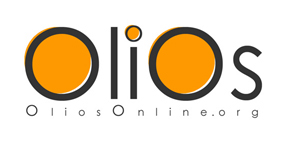| Latest Commentary: | Volume VI, Number 123 |
|
House Committee Condemns WWI Armenian Genocide -- There’s a war in Iraq-Nam and another in Afghanistan. There’s a squelched rebellion in Burma and there’s a humanitarian disaster in Darfur. North Korea still has nuclear weapons and a sociopathic regime. Pakistan is on the brink of major political upheaval, and China and Russia are flexing their muscles around the world. Meanwhile, the House Foreign Relations Committee voted 27-21 on Wednesday to label the Ottoman Turkish murders of 1.5 million Armenians during World War I as “genocide,” thus annoying the Turks and not bringing much help to Armenia. The words “stupid,” “foolish,” and “moronic” come to mind.
Turks Consider Anti-Kurd Strikes in Iraq-Nam -- The Turkish government has had a problem with Kurdish nationalists for decades. It is a case of one man’s terrorist being another man’s freedom fighter. However, the Kurdish people live not only within the borders of Turkey but also are found in Iraq-Nam and Iran. Thus, the militant Kurds often attack Turkey from outside that country. The current Justice and Development [AK] Party government has reached the point where it feels a large incursion into Iraq-Nam’s Kurdish territory is necessary for national security. This puts it at odds with its NATO ally, the United States of America. UAW Strikes against Chrysler for a Few Hours -- After settling with General Motors, the United Auto Workers’ union targeted a new contract with Chrysler. Since Daimler sold Chrysler to a private investment entity, Cerberus Capital Management LP, not long ago, there was some concern that this deal would be a tougher one to make. Although the talks faltered and although the UAW walked off the job, the strike lasted just six hours. In that time, an agreement came together, suggesting Cerberus wants to make friends among its workers. Al Gore and UN Climate Panel Win Nobel Peace Prize -- Vice President Al Gore, Jr., and the UN’s Intergovernmental Panel on Climate Change have won this year’s Nobel Peace Prize. The Nobel committee cited “their efforts to build up and disseminate knowledge about man-made climate change” in making the award. The contribution this makes to peace is not immediately obvious, but the Norwegian Nobel Committee (all the other prizes are handed out by its Swedish counterpart), noted that climate change “increased [the] danger of violent conflicts and wars, within and between states.” There is a lesson beyond that in this event, the lesson of rehabilitation. © Copyright 2007 by The Kensington Review, Jeff Myhre, PhD, Editor. No part of this publication may be reproduced without written consent. Produced using Fedora Linux. |
|
